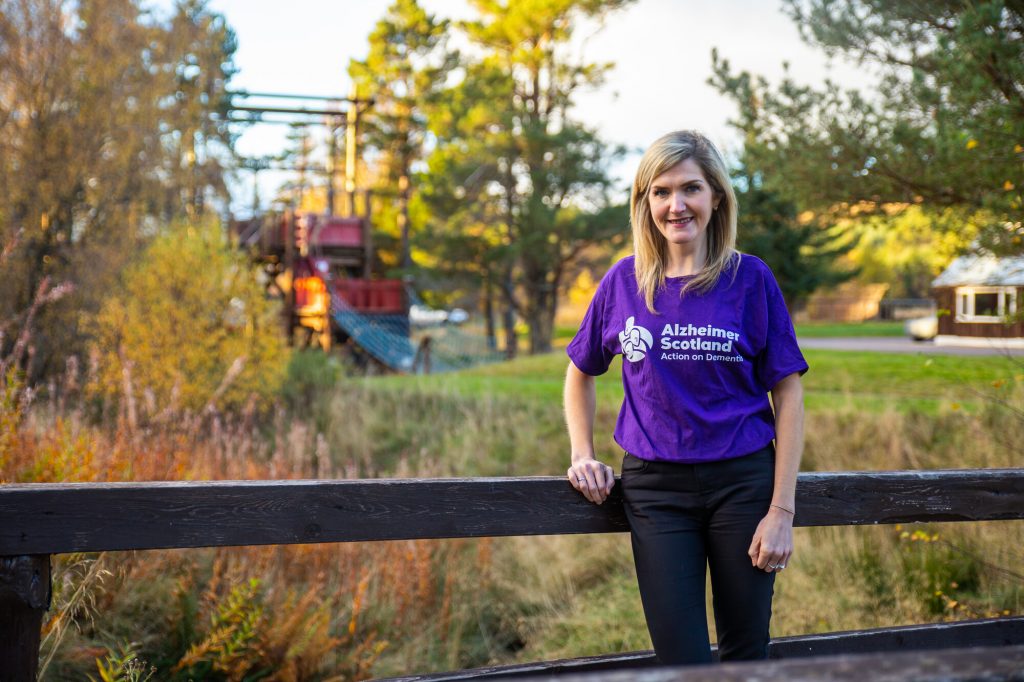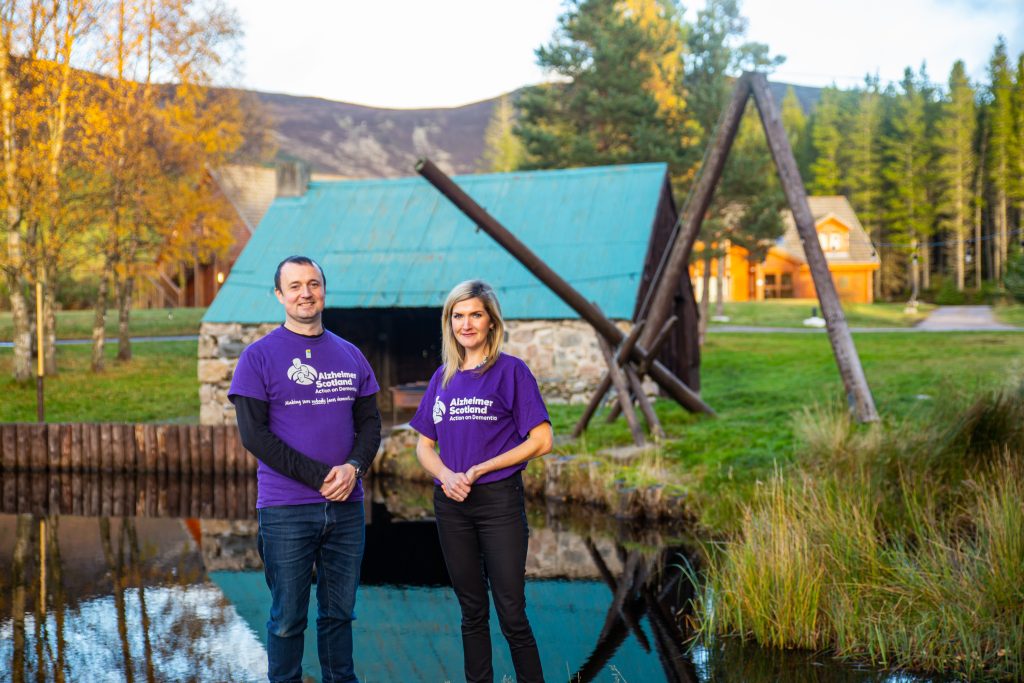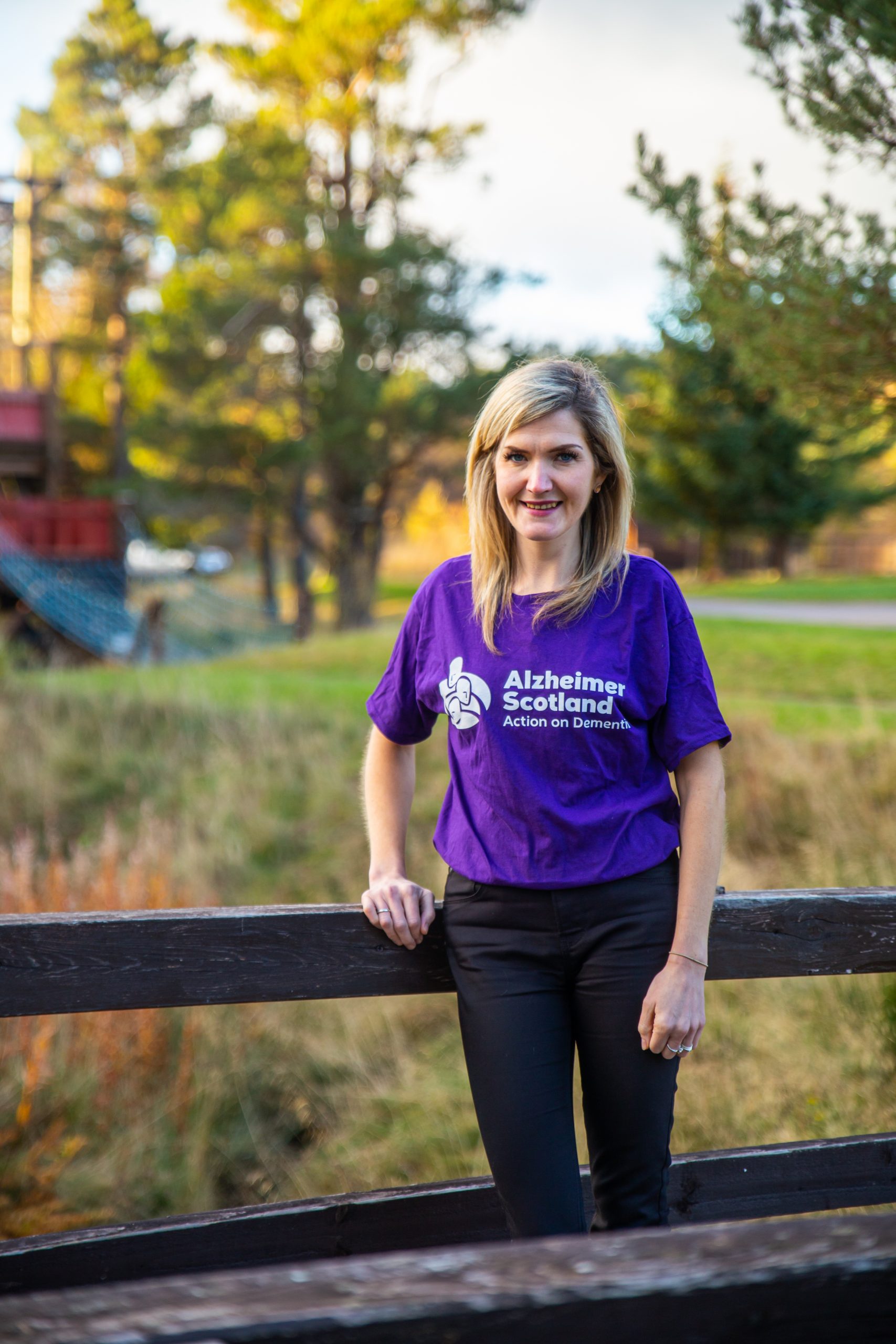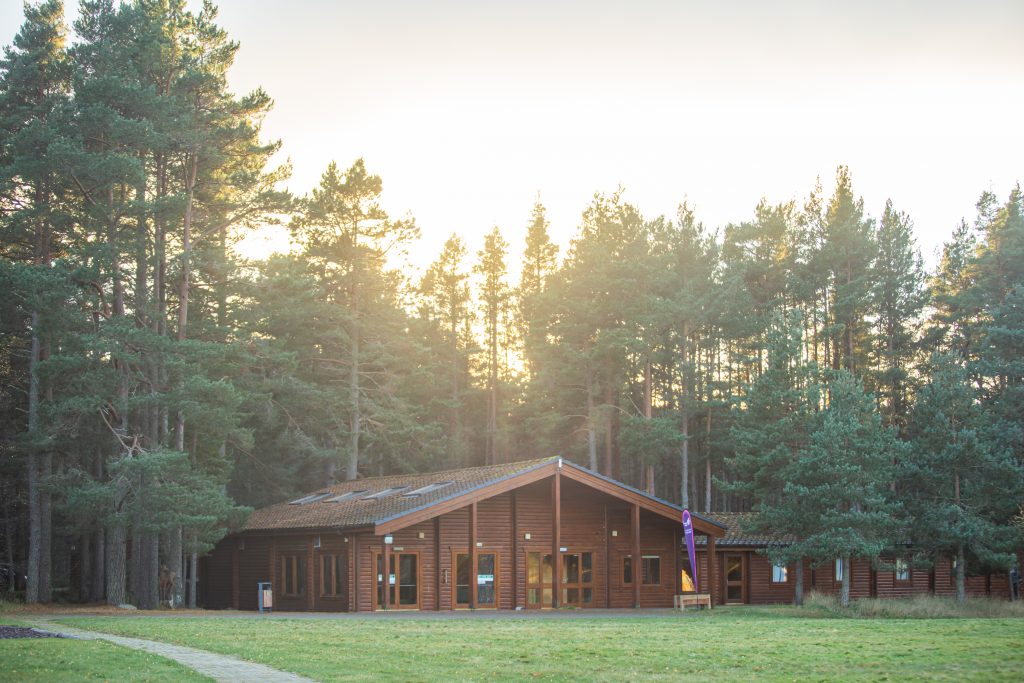UK’s first Outdoor Dementia Resource Centre at Badaguish
Gillian Councill works for Alzheimer Scotland as their Associate Executive Lead for Localities. She lives in Grantown with her husband and their dog Reiff. Here we speak to Gillian about her connection to the Cairngorms National Park and the UK’s first Outdoor Dementia Resource Centre at Badaguish, that enables people living with dementia and their family and carers to experience the mental and physical benefits of spending time outdoors.

What does the Cairngorms mean to you?
Mountains are my favourite place to be and living in Grantown, there are lots of opportunities to get out climbing in the summer and winter months – my husband and I really enjoy ski touring too. Earlier this year I completed all the Munros and a couple of years ago we biked the North Coast 500. One of my favourite things to do is go for a run in the woods around Grantown with my dog.
I see the Park as my playground. When climbing, running, or cycling I often see people that I know from being in the outdoors. There is a welcoming and homely outdoors community and that is one of the things I find most special about the Park, the sense of community.
Tell us about the Outdoor Dementia Resource Centre
The project is part of the Park Authority’s Heritage Horizons: Cairngorms 2030 programme and supports local people with dementia. Some of our participants are people who have been at the heart of the evolution of the outdoors culture in the Cairngorms National Park – from pioneering rangers to skiers and climbers.
People can be forgotten when they get older and that’s not good enough. The centre is the first of its kind in the UK and supports people with dementia, their families and caregivers to have enriching outdoor experiences. Anyone can get in touch with us and get support.
What role can nature and the outdoors play?
If someone has dementia, their brain is working hard to operate and when you add in a noisy house or traffic it can be challenging. Nature is really good for our mental health but there’s also something about just being in the moment, with gentle stimuli such as birdsong, rain and wind. The centre gives people a rediscovered sense of freedom to explore the outdoors at their own pace.
A lot of what we’re doing is failure free activities – a series of experiences for people to enjoy and just be in the moment. The centre can give people with dementia, and their families, a rediscovered sense of freedom. They scope of exploration and still being able to explore outdoors and take part in activities together is liberating for participants and their families.
What are your hopes for the future of the project?
I’d like us to show how well this type of activity works in practice and demonstrate that clear referral pathways are in place, working with the NHS. Nature could be ‘prescribed’ as an alternative to medication in some cases. Ultimately, I hope our project can become a blueprint for other communities to follow.


